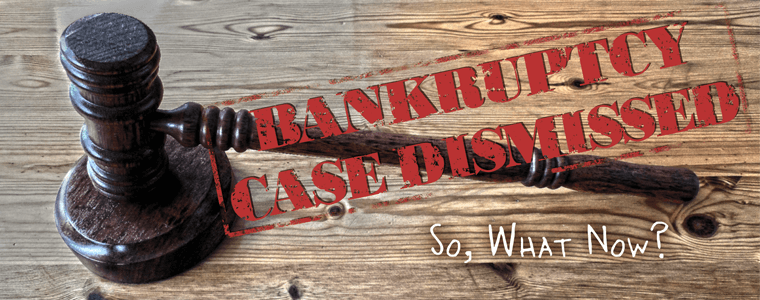By John Lee
Many debtors have previously filed a bankruptcy and want to know how that will affect them in filing another bankruptcy. A debtor may not receive a discharge in a present Chapter 7 Bankruptcy if they have previously received a Chapter 7 discharge in a case filed in the last 8 years. A debtor may not receive a discharge in a present chapter 13 bankruptcy if the debtor had previously received a chapter 13 discharge in a case filed in the last 2 years. A debtor may not receive a discharge in a present chapter 13 bankruptcy if the debtor had previously received a chapter 7 discharge on a case filed in the last four years. A debtor may not receive a chapter 7 discharge if the debtor had previously received a discharge on a chapter 13 case filed in the last six years.
Given those rules, one can see how you could file bankruptcy every four to eight years if you alternate between Chapter 7 and Chapter 13. Also, if the debtor did not receive a discharge in the prior bankruptcy he may still be eligible to file another bankruptcy. Even if the debtor is not eligible to receive a discharge he may want to file bankruptcy to avail him of the chapter 13 plan and automatic stay. One may want a bankruptcy with out a discharge to get on a payment plan for non-dischargeable debt such as tax debt.
Another problem we see is clients coming into file bankruptcy to stop a foreclosure sale on real estate that they don’t own or are not on the mortgage. The most common example of this is when the debtor inherits property from their parents or relatives. In many cases, the house has equity but they have gotten behind on the payments for various reasons. The debtor wants to file a personal bankruptcy to prevent foreclosure on the property they have inherited. Even if the debtor has not had his name added to the deed, if the Will has been recorded or a list of heirs has been filed there is a sufficient ownership interest to file bankruptcy. However, because the debt is not in the debtors name the mortgage company may file a motion for relief to resume the foreclosure process. In most cases, the court will grant the relief and allow the foreclosure process to resume. Many debtors choose to file the bankruptcy because it either buys them some more time to raise the money to catch up the mortgage arrears or they are hoping the mortgage company never files for relief and the bankruptcy goes through.
The automatic stay is an important part of the bankruptcy process. It is the court order that requires the creditors to stop all collection activity including garnishments and law suits. The automatic stay is issued immediately upon filing of the case. That means if you file the case at 1:00 PM, a foreclosure scheduled at 1:15 PM must be cancelled. In some cases the automatic stay will automatically terminate after 30 days, in other cases it will never go into effect. It is very important to know about previously filed bankruptcies when dealing with the automatic stay.
If the debtor has filed for bankruptcy in the past one year and that case has been dismissed, then the automatic stay only last for 30 days. Another way of saying it, if you file a second bankruptcy within one year of a previous bankruptcy being dismissed, then the automatic stay expires after 30 days. The debtor’s attorney can file a motion to extend the automatic stay, but it may not be granted. A common example of this is when a chapter 13 bankruptcy is dismissed and then a second bankruptcy is filed to stop a foreclosure sale. This rule is in place to prevent a person from filing multiple bankruptcies to repeatedly stop a creditor from taking action against secured collateral.
If a debtor files a third bankruptcy in one year then no automatic stay goes into effect and the creditors are free to continue collection activity unless the Court enters an order reinstating the automatic stay. The debtor’s attorney may schedule a hearing to determine if the court will extend the automatic stay. If the court finds that a debtor is abusing the bankruptcy system by filing too many bankruptcies or not following through with the bankruptcies they do file; the court may enter an order prohibiting the debtor from filing any more bankruptcies for a period of months.
Filing bankruptcies and then having them dismissed for failure to properly file documents or attend hearings can be a very dangerous thing because you may not have an opportunity to file another bankruptcy for a long period of time. If you file bankruptcy Pro Se and mess it up, you may end up in a situation where an attorney can not help you file a subsequent bankruptcy. It is very important to not allow your case to be dismissed for failing to make the first chapter 13 plan payment, missing a 341hearing or not providing the documents in a timely fashion.
If you have filed a bankruptcy in the past, you may not be eligible for a discharge or automatic stay in a subsequent filing. It is very important to have an attorney help you determine exactly what you are eligible for in a second bankruptcy filing. The attorneys at John W. Lee, PC can help you determine if you can re-file, and if so, whether you are eligible for an automatic stay and discharge.
This may be considered Advertising Material.


